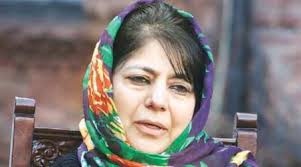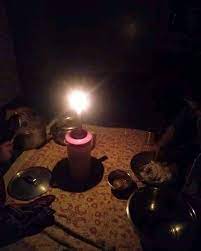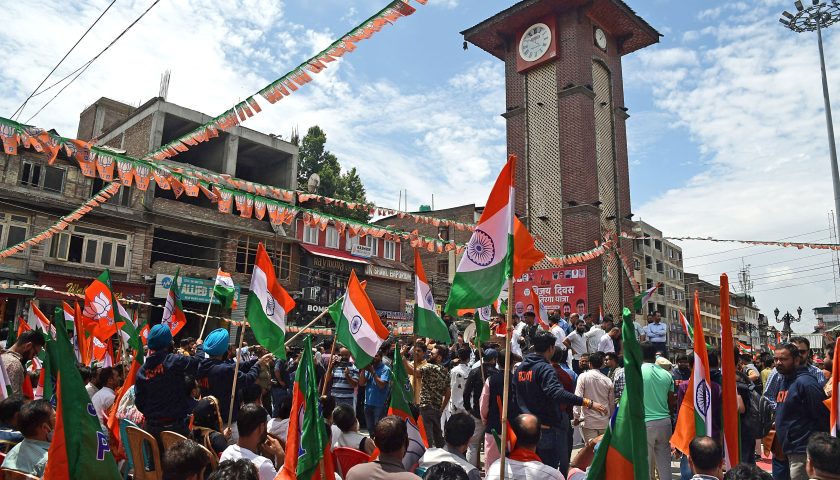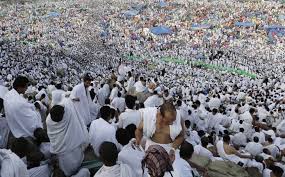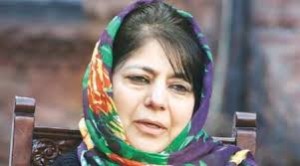 The BJP, which won 25 out of 37 seats in Jammu province in the 2014 state assembly elections is likely to bite the dust if the Peoples Democratic Party (PDP) refuses to form the government and a mid-term election is forced on the state, experts said. The PDP president, Mehbooba Mufti, is seeking fresh confidence building measures from no less than the Prime Minister Narendra Modi on timely implementation of ‘Agenda of the Alliance’, a document agreed upon by two parties before forming a coalition government in state in March last year. If the assurances don’t come, Mehbooba will not hesitate in calling for fresh elections.
The BJP, which won 25 out of 37 seats in Jammu province in the 2014 state assembly elections is likely to bite the dust if the Peoples Democratic Party (PDP) refuses to form the government and a mid-term election is forced on the state, experts said. The PDP president, Mehbooba Mufti, is seeking fresh confidence building measures from no less than the Prime Minister Narendra Modi on timely implementation of ‘Agenda of the Alliance’, a document agreed upon by two parties before forming a coalition government in state in March last year. If the assurances don’t come, Mehbooba will not hesitate in calling for fresh elections.
It won’t be the first time for the PDP president to pull out of a coalition arrangement in the state; she took a similar decision in the year 2008 and broke her party’s partnership with Congress following a massive public uproar after controversy over transfer of forest land in Amarnath to set up temporary shelters for Hindu pilgrims.
The PDP lawmakers who met on Monday assured Mehbooba of their full support in either situation — to go ahead for the mid-term polls or alliance with the BJP. While the situation in 2008 had resulted in a surge in PDP’s seat share, it will be both the PDP as well as the BJP which will have to take a hit this time if fresh elections are conducted in the state.
Political observers say the BJP would suffer more electorally in Jammu than the PDP will in Kashmir which will make the opposition National Conference and Congress likely beneficiaries. Hari Om, a former BJP leader in Jammu, said the popularity of BJP in last ten months has witnessed a steep decline, not just because of the coalition’s failure to deliver on governance but also because the Hindu right-wing leaders failed to remain in touch with people.
“They (BJP) could not get 200 people for a meeting on Sunday in Geeta Bhavan in Jammu. I would be surprised if they manage to retain four seats out of 25, if the elections were to be held in next six months. It was the ‘Modi Wave’ which worked for the party in 2014 assembly elections. The wave has died down a long time back,” Om told KP.
Echoing Om, Pawan Sharma, a senior journalist who has covered Jammu politics from last two decades, says that except for Madan Lal Sharma, a former Congressman, everyone who was made minister by the BJP has failed. “The inexperienced ministers of the BJP in the coalition government failed to even make a mark on the ground in Jammu region,” Sharma said.
The BJP, if the polls were to be conducted in next six months, will end up retaining only four to six seats in Jammu region, according to Sharma. Most political observers predict a grim outcome for the party in the Hindu majority region of the Muslim majority state.
Jammu and Kashmir Congress chief, Ghulam Ahmed Mir, says that although the 2014 mandate was communally polarising, but the two parties got the highest mandate for the first time in the two regions, but they are now failing to even re-stitch their alliance, 25 days after Mufti Mohammad Sayeed died.
“People gave PDP-BJP the highest mandate in last elections because they had polarised Jammu and Kashmir communally like never before. BJP pitted Jammu vs Kashmir, and PDP did vice-versa. Now after ten months of their rule, people have realised that they failed on all counts. You won’t find an address of the BJP in Jammu in the next elections, be today or after six years,” Mir told KP.
The mood in Chenab valley, which has six seats and where Prime Minister Narendra Modi chose to address his first election rally in 2014 assembly elections, is seen favourably drifting towards Congress and National Conference. “What is surprising is that even in the urban areas of Jammu, there is an apparent resentment against the BJP leaders as they have failed to address people’s issues in the last nine months,” journalist Sharma said.
The BJP has made history of sorts in the state when it won 25 of the 37 seats in the Jammu province for the first time in the electoral history of the state, a feat which helped it emerge as the second largest party in Jammu and Kashmir.
The deliverance of governance at the ground level was yet to take off when the former Chief Minister, Mufti Mohammad Sayeed, passed away on January 7 in New Delhi. Only controversies marked the nine months of period that saw the two parties often squabble, covertly and overtly, with each other over political and developmental issues.
The Congress got five seats in Jammu followed by three each by NC and PDP and one went to lone Independent candidate from Udhampur Kuldeep Gupta. In 2008, BJP had won 11 seats in the region. Congress had bagged 13 seats, followed by six by NC, two by PDP, three by J&K Panthers Party and two by independent candidate.
“There would be no repeat of that mandate for BJP in Jammu region, not for the governance sake or failing to deliver, but the Modi factor played a critical role in mobilising public opinion. Never before in Jammu had an election been so decisive as it was in 2014. That won’t hold true for today. The failure is also because all the old faces of BJP in Jammu were kept aside in the government,” senior political commentator, Rekha Chowdhary, told KP.
On the other hand, the PDP electoral calculations seems to be misplaced. The party is hoping that if the things don’t turn out well with BJP on implementation of ‘Agenda of Alliance,’ it will go back to people for a fresh mandate and will make a comeback. But that is unlikely to happen, given the mood on ground which has tuned against the party. It could also be the reason that the opposition National Conference is desperately wanting the alliance to continue, so that its rivals get buried under their own expectations.

